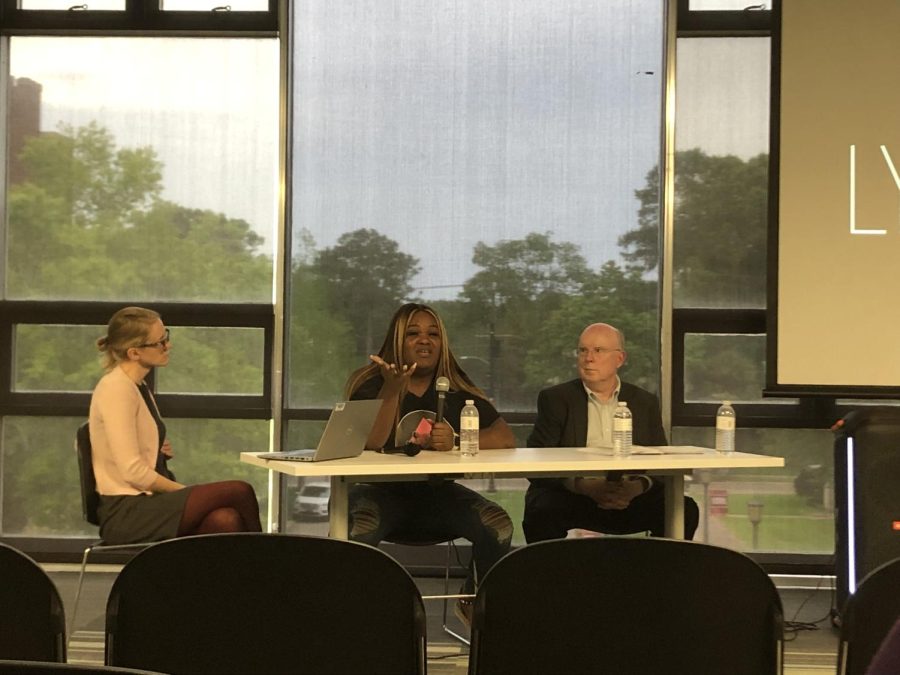Transgender activist speaks out against antiquated law
May 2, 2023
Wendi Cooper, a local transgender rights activist, was arrested and registered as a sex offender under Louisiana’s Crime Against Nature by Solicitation laws. For the ten years that Cooper was on the sex offender registry, she said that this status limited her ability to access employment, housing, and even evacuation assistance during natural disasters.
Crime Against Nature by Solicitation outlaws anal and oral sex for profit but carries a higher penalty than straightforward prostitution, Cooper said. Specifically, people arrested under this law are required to be registered as sex offenders and often face jail time.
“I just felt like my life was never private,” she said.
No matter where she went, people knew she was registered as a sex offender and treated her differently because of it, Cooper said.
Cooper’s experience is not unique. Historically, these statutes have been used to justify discrimination against LGBTQ communities, specifically, Black transgender women engaged in “survival sex work.”
Cooper used the term “survival sex work” to explain the conditions under which people have no alternative means to support themselves. Status as a felon only enhances these conditions, she said.
Cooper spoke to the Loyola community about her experience, as well as some of the positive outcomes that have come from her activism at an event hosted by Loyola’s Jesuit Social Research Institute.
Throughout the month of April, JSRI has hosted events in honor of Second Chance Month that are designed to educate the Loyola community on ongoing issues with the US criminal legal system, as well as the work that is being done in response to those issues.
The event, at which Cooper spoke, consisted of a documentary film screening titled “CANS Can’t Stand” and a panel discussion with local transgender rights activists, including Loyola Law Professor Bill Quigley.
According to Quigley, sex offenders are unable to evacuate to standard shelters in case of emergency. This puts these individuals at significant risk.
And, Quigley said, this is symptomatic of an overall lack of support for these communities.
LGBTQ youth are much more likely to experience homelessness, making up 40% of all homeless youth while only making up 9.3% of the US population.
In the past 40 years, hundreds of people have been convicted and silenced under CANS, Cooper said. Although 700 of these people had their records expunged and been removed from the official sex offender registry following a legal settlement in 2012, these laws are still “on the books” in Louisiana, she said.
Cooper said that expunged records are still visible in legal paperwork. The only real difference is that they are now labeled “expunged.”








